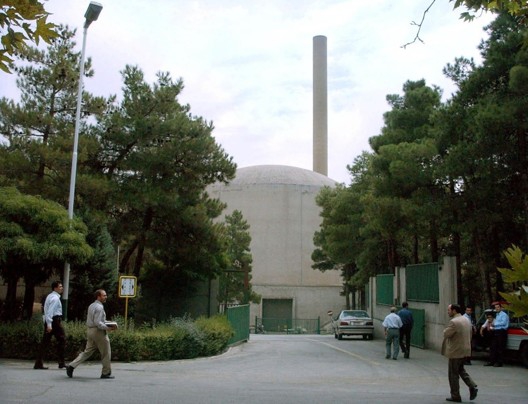Tuesday 23 December 2014 - 00:18
Story Code : 6971
Iran shifts enriched uranium to reactor fuel stock in confidence show for West
TEHRAN, Iran In a bid to ease international concerns over its nuclear program, Iran has converted more than a third of Tehrans most highly enriched uranium into a powder for a medical research reactor that is difficult to reprocess for weapons production, experts and U.N. monitors say.
The work noted in a technical report by the U.N.s nuclear watchdog agency in late August suggests Iran is trying to display enough goodwill to restart nuclear talks with world powers, while aiming to soften demands by the U.S. and others to halt Tehrans top-level uranium enrichment.
An influential Iranian parliament member, Hossein Naqavi, said the country was taking a serious and concrete confidence-building measure by converting some of the 20 percent enriched stockpile into U3O8, or uranium oxide, in the form of powder.
An influential Iranian parliament member, Hossein Naqavi, said the country was taking a serious and concrete confidence-building measure by converting some of the 20 percent enriched stockpile into U3O8, or uranium oxide, in the form of powder.
The move also appears to be part of a wider strategy to seek relief from tightening Western sanctions in exchange for step-by-step plans to scale back uranium enrichment, which Washington and its allies fear could lead to weapons-grade material. Iran insists it only has peaceful nuclear ambitions.
But it has offered no substantial concessions to cut into Irans stockpile of 20 percent enriched uranium, the highest level acknowledged by the Islamic Republic. Iran already has enough to provide fuel for its Tehran research reactor for years and labs are equipped to make more material at that level, said Olli Heinonen, former director-general at the U.N.s International Atomic Energy Agency who headed the organizations Iran file until 2010.
So far, Irans proposals have met with resistance from the West as the economic toll from the embargos take a toll, including protests this week after the nations currency shed nearly 40 percent of its value.
Irans 20 percent enrichment program is among the core disputes. Thats because it can be boosted to weapons-grade far more rapidly than the 3.5 percent-enriched uranium used for Irans lone energy reactor.
Iran says it needs this degree of enrichment for its medical research reactor, which can produce isotopes for cancer treatment. It also has announced plans to build more such reactors. The U.S. and allies want Iran to halt the 20 percent production and ship the rest of the material outside the country.
The impasse has put talks on hold between Iran and a six-nation group, the permanent Security Council members plus Germany.
Iranian officials repeatedly insist they will never give up the capacity uranium enrichment. But tightening Western sanctions and growing public outcry could open Tehrans leadership to more deal-making.
The U.N.s IAEA confirmed in its Aug. 30 report Iran had made U308 uranium oxide from 71.25 kilograms (157 pounds) of its total of 190 kilograms (nearly 419 pounds) of 20 percent enriched uranium produced until mid-August.
U308 is effectively off the table as a material for possible weapons production, experts say.
The powder is turned into fuel plates for the reactor, but it is complicated and dangerous to try to change the radioactive powder back into a gas state needed for the enrichment centrifuges, said an Iranian nuclear scientist, Rasoul Sediqi Bonabi, a professor at Sharif University of Technology in Tehran.
The Iran Project is not responsible for the content of quoted articles.
# Tags











